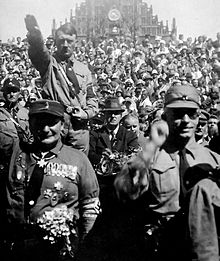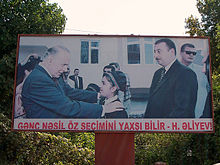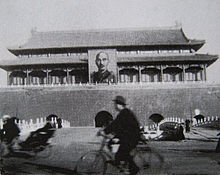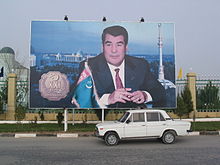БОК политология Омарбекова А.Т. 0704000,0701000. Общее количество на предмет 28 часов
 Скачать 0.77 Mb. Скачать 0.77 Mb.
|
|
Тема: The political regime. Regime. The word regime (also "régime", from the original French pronunciation) refers to a set of conditions, most often of a political nature. Politics In politics, a regime is the form of government: the set of rules, cultural or social norms, etc. that regulate the operation of government and its interactions with society. Modern usage While the word regime originates as a synonym for any form of government, modern usage often gives the term a negative connotation, implying an authoritarian government or dictatorship. Webster's definition states that the word regime refers simply to a form of government, while Oxford English Dictionary defines regime as "a government, especially an authoritarian one". Nowadays the political use the word regime is most commonly applied to any government that is most of the time not democratically elected and imposes strict and often arbitrary rules and laws on the people that are, because of the undemocratic nature of the government, non-negotiable. International regime International political use of regime concerns international regulatory agencies (see International regime), which lie outside of the control of national governments. These have more power over a greater range than postal or telecommunications agreements, for example, and constrain national governments. A political regime is a set of political structures that make up a state. These political systems range from direct democracies to totalitarian regimes, such as military dictatorships. Common systems in the modern world include democratic republics, monarchies, and representative democracies. There are also primarily theoretical types of governments, like a strict meritocracy. Democracies One of the most often-talked about political system is a representative democracy. This is a system in which representatives are directly elected by the citizens, and these representatives then make political decisions for the people, with the assumption that their decisions will reflect the general will of the republic. This can be compared to a direct democracy, in which the citizens directly vote on all issues of importance. Republics The republic is one of the most common systems of government in the world, although it takes many different forms. For instance, a republic can be associated with a religion, as in the case of an Islamic republic; an economic system, as in a socialist republic; or a political procedure, likes a parliamentary republic. A number of republics try to show the fact that they are actually made up of smaller, semi-autonomous parts. The United States of America, for example, says very clearly that its political regime is that of a group of united state entities. Both Nigeria and Germany also convey this idea by calling themselves federal republics. Republics are often denoted in the official name of the state, and often include a modifier to convey some sort of philosophical ideal the political regime holds. For example, Guyana is known as a the Co-Operative Republic of Guyana, Sri Lanka is known as the Democratic Socialist Republic of Sri Lanka, and mainland China is known as a People’s Republic of China. The actual governmental system in these countries can vary: for instance, China is a Marxist-Leninist single party state, not a republic. This type of government can also go the other way, with several republics being part of one state, like countries in the former Soviet Union. Dynastic Governments Dynastic systems of government consist of all the leaders of the country coming from one family. Common types of this government include monarchies, emirates, and dynastic empires, like that of Imperial China. In modern times, the leaders of many monarchies and emirates serve primarily as figureheads. This type of government is called a constitutional monarchy or nominal monarchy, and includes countries like the United Kingdom. The opposite of this is an absolute monarchy, in which the ruler has total power to govern the state, and is not subject to control from a constitution or parliament. Examples of modern absolute monarchies include Saudi Arabia and Qatar. Authoritarian and Totalitarian Regimes In authoritarian and totalitarian political regimes, one person, entity, or party has complete control over the affairs of the state, without the input or consent of the population. In totalitarian regimes specifically, this leader attempts to control all aspects of a society, including things like the personal beliefs and morals of the population. These are sometimes accompanied by a cult of personality around the leader or leaders, as in the case of Adolf Hitler, the leader of Nazi Germany. Common forms of authoritarian or totalitarian regimes include military juntas, in which a small committee of military leaders rules the country or a single-party state, in which only one political party is in power and others are either outrightly or tacitly not allowed to challenge that authority. Another form is a dictatorship, in which one person rules the country without being accountable to anyone and then passes his or her powers on to another person upon death. Контрольные вопросы: What is the regime? What is the international regime? What is the main concept of democraties? What is the main concept of republics? What are authoritarian and totalitarian regimes? УРОК 7 Тема: The political institutes. Definition: Political institutions are organizations which create, enforce, and apply laws; that mediate conflict; make (governmental) policy on the economy and social systems; and otherwise provide representation for the populous. Examples of such political institutions include political parties, trade unions, and the (legal) courts. The term 'Political Institutions' may also refer to the recognized structure of rules and principles within which the above organizations operate, including such concepts as the right to vote, responsible government, and accountability. Dynastic Governments Dynastic systems of government consist of all the leaders of the country coming from one family. Common types of this government include monarchies, emirates, and dynastic empires, like that of Imperial China. In modern times, the leaders of many monarchies and emirates serve primarily as figureheads. This type of government is called a constitutional monarchy or nominal monarchy, and includes countries like the United Kingdom. The opposite of this is an absolute monarchy, in which the ruler has total power to govern the state, and is not subject to control from a constitution or parliament. Examples of modern absolute monarchies include Saudi Arabia and Qatar. Republics The republic is one of the most common systems of government in the world, although it takes many different forms. For instance, a republic can be associated with a religion, as in the case of an Islamic republic; an economic system, as in a socialist republic; or a political procedure, likes a parliamentary republic. A number of republics try to show the fact that they are actually made up of smaller, semi-autonomous parts. The United States of America, for example, says very clearly that its political regime is that of a group of united state entities. Both Nigeria and Germany also convey this idea by calling themselves federal republics. Republics are often denoted in the official name of the state, and often include a modifier to convey some sort of philosophical ideal the political regime holds. For example, Guyana is known as a the Co-Operative Republic of Guyana, Sri Lanka is known as the Democratic Socialist Republic of Sri Lanka, and mainland China is known as a People’s Republic of China. The actual governmental system in these countries can vary: for instance, China is a Marxist-Leninist single party state, not a republic. This type of government can also go the other way, with several republics being part of one state, like countries in the former Soviet Union. Контрольные вопросы: 1. What is the origin of state institute connected with? 2. Give the definition of state, the main functions of state, the forms of government of the state. 3. The place of parties and social movements in the political life of the society. 4. What is the future of political parties in Kazakhstan? УРОК 8 Тема: Subjects of politics. Elite. An elite in political and sociological theory, is a small group of people who control a disproportionate amount of wealth or political power. Identity and social structure C. Wright Mills wrote in his 1957 book The Power Elite of the "elite" as "those political, economic, and military circles, which as an intricate set of overlapping small but dominant groups share decisions having at least national consequences. Insofar as national events are decided, the power elite are those who decide them." Mills states that the power elite members recognize other members' mutual exalted position in society. "As a rule, '[t]hey accept one another, understand one another, marry one another, tend to work and to think, if not together at least alike.'" "It is a well-regulated existence where education plays a critical role. Youthful upper-class members attend prominent preparatory schools, which not only open doors to such elite universities as Harvard, Yale, and Princeton but also to the universities' highly exclusive clubs. These memberships in tuen pave the way to the prominent social clubs located in all major cities and serving as sites for important business contacts." The men who receive the education necessary for elitist privilege obtain the background and contacts that allow them to enter three branches of the power elite, which are: The Political Leadership: Mills contended that since the end of World War II corporate leaders had become more prominent in the political process, with a decline in central decision-making for professional politicians. The Military Circle: In Mill's time a heightened concern about warfare existed, making top military leaders and such issues as defense funding and personnel recruitment very important. Most prominent corporate leaders and politicians were strong proponents of military spending. The Corporate Elite: According to Mills, in the 1950s when the military emphasis was pronounced, it was corporate leaders working with prominent military officers who dominated the development of policies. These two groups tended to be mutually supportive." According to Mills, the governing elite in the US primarily draws its members from three areas: the highest political leaders (including the president) and a handful of key cabinet members and close advisers; major corporate owners and directors; and high-ranking military officers. These groups overlap, and elites tend to circulate from one sector to another, consolidating power as they do so. Unlike the ruling class, a social formation based on heritage and social ties, the power elite is characterized by the organizational structure through which its wealth is acquired. According to Mills, part of the power elite is "the managerial reorganization of the propertied classes into the more or less unified stratum of the corporate rich." Domhoff further clarified the differences in the two terms: "The upper class as a whole does not do the ruling. Instead, class rule is manifested through the activities of a wide variety of organizations and institutions... Leaders within the upper class join with high-level employees in the organizations they control to make up what will be called the power elite."] The Marxist theoretician Nikolai Bukharin anticipated the power-elite theory in his 1929 work, Imperialism and World Economy:] present-day state power is nothing but an entrepreneurs' company of tremendous power, headed even by the same persons that occupy the leading positions in the banking and syndicate offices". Контрольные вопросы: 1. Name the main subjects of politics. 2. What is the necessity of institute of political leadership? 3. What are the functions and types of political leader? УРОК 9 Тема: Man and politics. Cult of personality A cult of personality arises when an individual uses mass media, propaganda, or other methods, to create an idealized, heroic, and, at times god-like public image, often through unquestioning flattery and praise. Sociologist Max Weber developed a tripartite classification of authority; the cult of personality holds parallels with what Weber defined as "charismatic authority". A cult of personality is similar to hero worship, except that it is established by mass media and propaganda. Etymology The term Cult of personality or Personality Cult first appeared in Nikita Khrushchev's Secret Speech in 1956. Cult of the individual is a more accurate translation. Background Throughout history, monarchs and heads of state were almost always held in enormous reverence. Through the principle of the divine right of kings, for example, rulers were said to hold office by the will of God. Imperial China (see Mandate of Heaven), ancient Egypt, Japan, the Inca, the Aztecs, Tibet, Thailand, and the Roman Empire (see imperial cult) are especially noted for redefining monarchs as god-kings. The spread of democratic and secular ideas in Europe and North America in the 18th and 19th centuries made it increasingly difficult for monarchs to preserve this aura. However, the subsequent development of photography, sound recording, film, and mass production, as well as public education and techniques used in commercial advertising, enabled political leaders to project a positive image like never before. It was from these circumstances in the 20th century that the best-known personality cults arose. Often these cults are a form of political religion. Purpose Personality cults were first described in relation to totalitarian regimes that sought to alter or transform society according to radical ideas. Often, a single leader became associated with this revolutionary transformation, and came to be treated as a benevolent "guide" for the nation without whom the transformation to a better future couldn't occur. This has been generally the justification for personality cults that arose in totalitarian societies of the 20th century, such as those of Adolf Hitler and Joseph Stalin. Not all dictatorships foster personality cults, not all personality cults are dictatorships (some are nominally democratic), and some leaders may actively seek to minimize their own public adulation. For example, during the Cambodian Khmer Rouge regime, images of dictator Pol Pot (Saloth Sar) were rarely seen in public, and his identity was under dispute abroad until after his fall from power. The same applied to numerous Eastern European Communist regimes following World War II (although not those of Enver Hoxha and Nicolae Ceaușescu, mentioned below). Examples  Adolf Hitler, behind Hermann Göring, at a Nazi rally in Nuremberg in 1928. The term cult of personality comes from Karl Marx's critique of the "cult of the individual"—expressed in a letter to German political worker, Wilhelm Blos. In that, Marx states thus: From my antipathy to any cult of the individual, I never made public during the existence of the [1st] International the numerous addresses from various countries which recognized my merits and which annoyed me... Engels and I first joined the secret society of Communists on the condition that everything making for superstitious worship of authority would be deleted from its statute. Historical examples Argentina Juan Perón, elected three times as President of Argentina, and his second wife, Eva Duarte de Perón, were immensely popular among many of the Argentine people, and to this day they are still considered icons by the Peronist Party. The Peróns' followers praised their efforts to eliminate poverty and to dignify labor, while their detractors considered them demagogues and dictators. To achieve their political goals, the Peronists had to unite around the head of state. As a result, a personality cult developed around both Perón and his wife. Azerbaijan  A billboard in Baku depicting Heydar Aliyev and his son Ilham Aliyev. Heydar Aliyev's cult of personality became a significant part of Azerbaijani politics and society after Heydar Aliyev came to power in 1993 and continuing after his death in 2003, when his son Ilham Aliyev succeeded him. Aliyev, a former Soviet politburo member and the leader of Soviet Azerbaijan from 1969 to 1987, became the President of Azerbaijan in 1993. He then began to carefully design an autocratic system, with heavy reliance on family and clan members, oil revenues and patronage. In Azerbaijan, Heydar Aliyev is presented as "Father of the Azeri nation", often compared to Kemal Atatürk. China  Portrait of Chiang Kai-shek on Tiananmen A personality cult in the Republic of China was centered on the Kuomintang party founder Sun Yat-sen, and his successor, Generalissimo Chiang Kai-shek. The personality cult of Chiang Kai-shek went further after the republican government fled to Taiwan. He was usually referred as "Lord Chiang" in public and a Nuo tai were required in printed materials. Articles in textbooks and songs glorifying him were common to be seen in Taiwan before 1987. The People's Republic of China under Mao Zedong can also be considered a cult of personality. Culture of the People's Republic of China before 1981 were highly influenced by the personality cult of Mao Zedong and went to a peak during the Cultural Revolution. Mao was referred as "the great leader Chairman Mao" in public and was entitled as "the great leader, the great supreme commander, the great teacher and the great helmsman"in Cultural Revolution. Badges and books of his quotations were largely produced. Most of people were required to recite the quotation of Mao and printed material at that time usually quote Mao's words in bold in preface. Loyalty dance was also introduced in Cultural Revolution. Soviet Union Nikita Khrushchev recalled Marx's criticism in his 1956 "Secret Speech" denouncing Joseph Stalin and his cult of personality to the 20th Party Congress: Comrades, the cult of the individual acquired such monstrous size chiefly because Stalin himself, using all conceivable methods, supported the glorification of his own person.... One of the most characteristic examples of Stalin's self-glorification and of his lack of even elementary modesty is the edition of his Short Biography, which was published in 1948. This book is an expression of the most dissolute flattery, an example of making a man into a godhead, of transforming him into an infallible sage, "the greatest leader", "sublime strategist of all times and nations". Finally no other words could be found with which to lift Stalin up to the heavens. We need not give here examples of the loathsome adulation filling this book. All we need to add is that they all were approved and edited by Stalin personally and some of them were added in his own handwriting to the draft text of the book. Some authors (e.g., Alexander Zinovyev) have argued that Leonid Brezhnev's rule was also characterized by a cult of personality, though unlike Stalin, Brezhnev did not initiate large-scale persecutions in the country. One of the aspects of Leonid Brezhnev's cult of personality was Brezhnev's obsession with titles, rewards and decorations, leading to his inflated decoration with medals, orders and so on. This was often ridiculed by the ordinary people and led to the creation of many political jokes. Turkmenistan  Saparmurat Niyazov, who was ruler of Turkmenistan from 1985 to 2006, is another oft-cited cultivator of a cult of personality. Niyazov simultaneously cut funding to and partially disassembled the education system in the name of "reform", while injecting ideological indoctrination into it by requiring all schools to take his own book, the Ruhnama, as its primary text, and like Kim Il-sung, there is even a creation myth surrounding him. During Niyazov's rule there was no freedom of the press nor was there freedom of speech. This further meant that opposition to Niyazov was strictly forbidden and "major opposition figures have been imprisoned, institutionalized, deported, or have fled the country, and their family members are routinely harassed by the authorities." Additionally, a silhouette of Niyazov was used as a logo on television broadcasts and statues and pictures of him were "erected everywhere". For these, and other reasons, the US Government has gone on to claim that by the time he died, "Niyazov’s personality cult...had reached the dimensions of a state-imposed religion". United States The personal life of John F. Kennedy was celebrated as "Camelot" during his life, and has only become more mythical after his death. Kennedy has been likened to such popular figures as Franklin D. Roosevelt, Elvis Presley, and Jesus Christ. Контрольные вопросы: 1. Personality – as subject of politics. 2. What rights and freedoms are private and political ones? 3. What political rights did you use? УРОК 10 |
